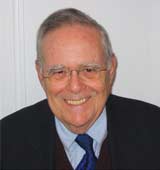Both. They can be great innovators and
also arrogant and dishonest, e.g., Jeff
Skilling, Joe Nacchio, Bernie Ebbers, or
grandiose serial acquirers who go into
debt, e.g., Jean-Marie Messier.
Can you give us a few examples of
narcissistic leaders and their
contributions?
See my response to question 1.
Historically, Henry Ford, and John D
Rockefeller transformed industries.
Have the connotations of
leadership changed in the last four
to five decades?
I don't know what you mean by
connotations. But narcissistic leaders
emerge in periods of great change in
technology or revolution in politics,
e.g., Lincoln, Gandhi, and Franklin
Roosevelt on the positive side, and
Napoleon, Hitler, Mao, and Stalin on
the negative side.
What is the best way to nurture
and develop leadership traits in
today's corporate world? Are there
any good examples of companies,
which have put in place an
exemplary leadership program?
Promising young leaders should be
given responsibility early on. GE has
had a notable leadership development
program. But leadership education is
ongoing. Even at the top, leaders
should keep learning. Perhaps,
especially at the top when they think
they know it all.
In the Power of Transference
(HBR September 2004) you have
highlighted the different faces of
transference. What is your take on
these differences as of today?
We are seeing a movement away from
the young idealizing leaders as
parental figures and stronger
emotional ties to colleagues due to
sibling and peer transferences.
Does a national culture influence
the leadership style? Or would it be
the other way round?
National culture does make a
difference. The benevolent despotism
of Lee Kuan Yew in Singapore works
in a traditional Chinese culture, but
not in the West or even in postcommunist
China. French
hierarchical arrogance contrasts to the
German type of hierarchy based on
expert master craftsmanship. And so
on. However, some business leaders
are better able to work in different
cultures than others who are unaware
of differences.
How do you rate the leadership
styles of Pierre Omidyar, Jeff Bezos
and Phil Knight (leaders who have
been operating from behind the
scenes), and Bill Gates (who has
taken a back seat now)?
Bezos and Gates are both productive
narcissists, visionaries. Gates
understood that he needed to partner
with a more obsessive operational
manager, Steve Ballmer. I haven't
studied the others.
Is it better for a company to
appoint a leader from within its
rank and file or is it better to hire
an outsider? Would your answer be
different for those companies,
which are going through trying
times?
It really depends on the alternatives.
It's better to find the best person in
terms of brains, personality and fit with
the type of company and its needs.
What are the ideals that you look
up to in today's leaders? Who
according to you are the best five
(corporate) leaders that the world
has seen in the last century?
I look for leaders in business who can
create value for stakeholders and also
improve the environment and
develop the company's employees.
They should present a model of both
ethical behavior and moral reasoning.
People in the company should be free
to speak out. In politics, we need
leaders who understand the
challenges of the global economy, the
environment, disease, violence and
fundamentalism, who can mobilize
people to act in a positive way to meet
these challenges. The five best
corporate leaders: James Proctor
(P&G), Bill Hewlett and Dave Packard,
Warren Buffett, Bill Gates, Sidney
Harman—on another day, I'd
probably give you another list.
